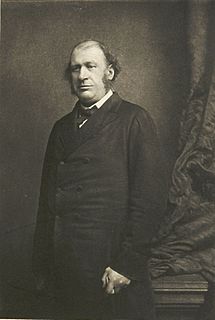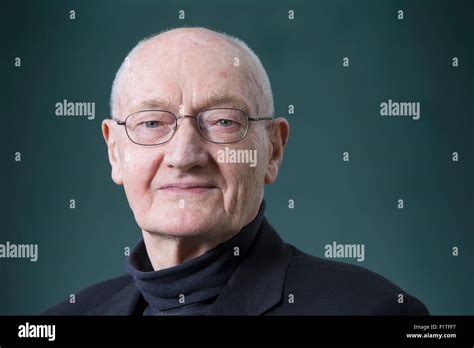A Quote by Elisabeth Elliot
There are those who insist that it is a very bad thing to question God. To them, “why?” is a rude question. That depends, I believe, on whether it is an honest search, in faith, for His meaning, or whether it is the challenge of unbelief and rebellion.
Related Quotes
To me this question whether liberty is a good or a bad thing appears as irrational as the question whether fire is a good or a bad thing. It is both good and bad according to time, place, and circumstance, and a complete answer to the question, In what cases is liberty good and in what cases is it bad? would involve not merely a universal history of mankind, but a complete solution of the problems which such a history would offer.
Until the content of a belief is made clear, the appeal to accept the belief on faith is beside the point, for one would not know what one has accepted. The request for the meaning of a religious belief is logically prior to the question of accepting that belief on faith or to the question of whether that belief constitutes knowledge.
The question should not be whether or not police are allowed to confront suspects; it should be about how we train them. The question should not be whether we have police; it should be how we use them. The question should not be whether judges should have the ability to protect New Yorkers from violent offenders; it should be how we let them.
I also believe that when people are going through difficult situations in life... it causes them to search a lot more. They search life and search their soul. When you’re searching, you’re suddenly a lot more open to the world around you, to the possibilities, to things you never thought about before. — When you’re happy, you don’t question the world so much. When you’re lost, you question everything. The very reason why it is so essential to human self-discovery
Science tries to answer the question: "How?" How do cells act in the body? How do you design an airplane that will fly faster thansound? How is a molecule of insulin constructed? Religion, by contrast, tries to answer the question: "Why?" Why was man created? Why ought I to tell the truth? Why must there be sorrow or pain or death? Science attempts to analyze how things and people and animals behave; it has no concern whether this behavior is good or bad, is purposeful or not. But religion is precisely the quest for such answers: whether an act is right or wrong, good or bad, and why.
The question is not whether the good outweighs the bad. The question is whether or not the good excuses the bad. And, in my opinion, it doesn't. It never does. As long as wrongs are being commited, in any quantity, and in any ratio to the amount of good that is being done, it is both irresponsible and wrong not to bring awareness to it, and struggle to put an end to it.
There are those of us who believe out of that faith tradition that God never puts more on us than we can bear, and yet there are times, I think, particularly given what you were up against, that we have to question whether or not we have the capacity, the ability, the wherewithal, to actually endure it.
Do I believe in God? Can't answer, I'm afraid. I'm not being flippant, but I don't understand the question. What is it that I am supposed to believe or not believe in? Are you asking whether I believe there is something not in the universe (or the universes, if there are (maybe infinitely) many of them), and that somehow stands above them? I've never heard of any reason for believing that.
Have faith in man, whether he appears to you to be a very learned one or a most ignorant one. Have faith in man, whether he appears to be an angel or the very devil himself. Have faith in man first, and then having faith in him, believe that if there are defects in him, if he makes mistakes, if he embraces the crudest and the vilest doctrines, believe that it is not from his real nature that they come, but from the want of higher ideals.



































